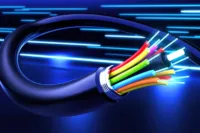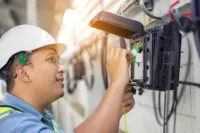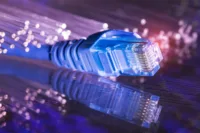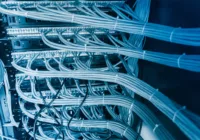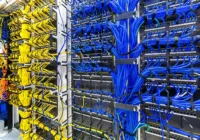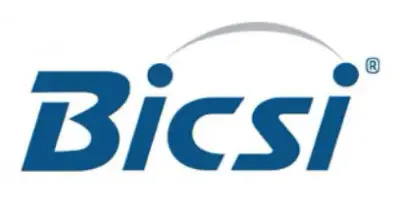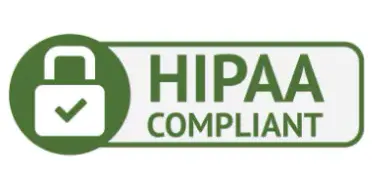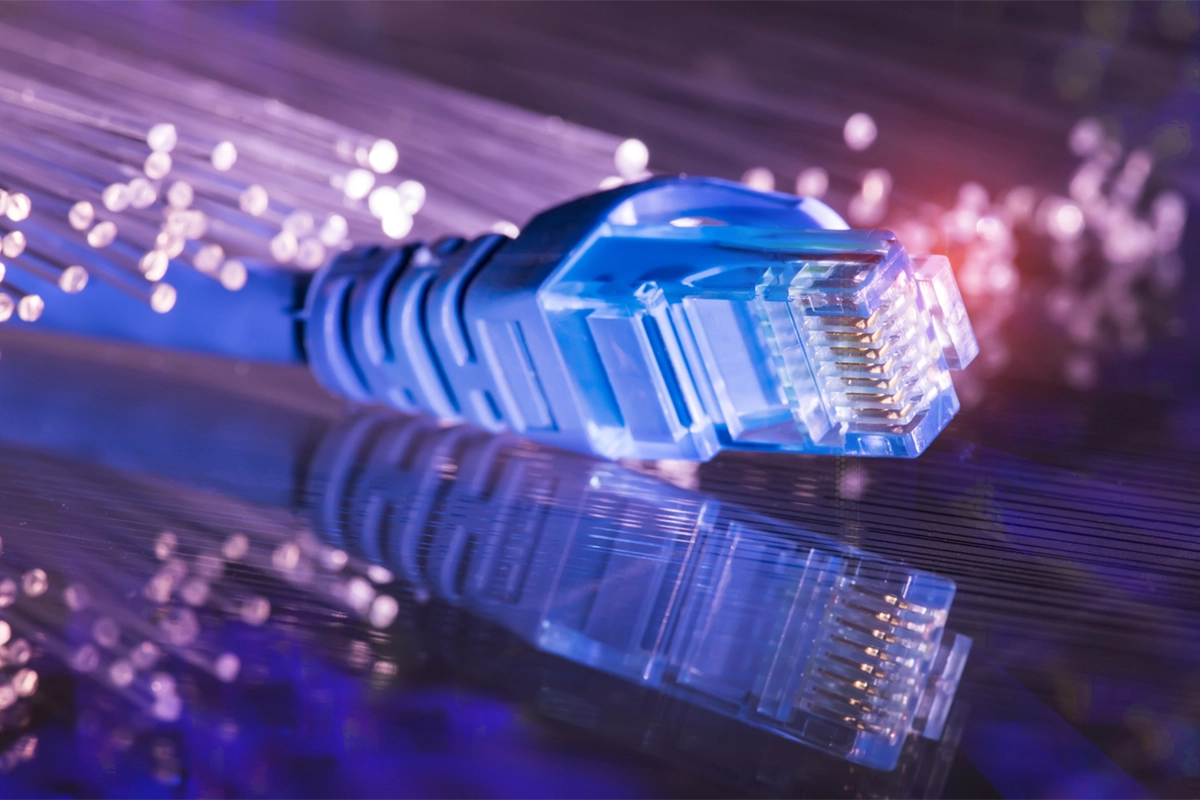
When setting up a reliable and efficient network for your business, choosing between fiber optic vs. copper cabling is a crucial decision. Both options have their strengths and are suited for different applications. At Aspen Communications, with offices in Prescott and Flagstaff, we specialize in helping businesses find the right solution based on their needs and goals.
Understanding how these technologies differ in performance, cost, and application is important for making an informed choice.
Understanding Copper Cabling
Copper cabling has been a staple in networking for decades. It transmits data using electrical signals, most commonly used in Ethernet networks. Its widespread availability and compatibility with existing systems make it an appealing choice for many businesses.
Copper cables, such as Cat5e, Cat6, and Cat6a, are designed for varying levels of speed and bandwidth. They are often chosen for smaller networks where distance and data demand are manageable. Copper’s key advantage is its affordability. Initial costs for materials and installation are typically lower than those of fiber optic cabling.
However, copper has limitations. Because it uses electrical signals, copper is more susceptible to electromagnetic interference (EMI), which can lead to reduced performance in environments with high electrical activity or interference levels. Copper cables also have a limited range, with a maximum effective distance of approximately 330 feet. Beyond this, signal degradation can become a significant issue.
What Makes Fiber Optic Cabling Different?
Fiber optic cabling represents the modern standard for high-performance networking. Instead of electrical signals, fiber uses light to transmit data, offering unparalleled speed and bandwidth. This makes it ideal for businesses with high data demands, such as video conferencing, cloud computing, and large-scale data transfers.
One of the most notable advantages of fiber optic cabling is its ability to maintain signal integrity over long distances. Unlike copper, fiber can transmit data over miles without experiencing significant degradation. It is also immune to EMI, making it a reliable choice in environments where electrical interference is a concern.
Although the initial investment for fiber optic cabling is higher than copper, its long-term benefits often outweigh the cost. Fiber is more durable, less prone to wear, and provides scalability for future growth. This makes it a forward-thinking solution for businesses planning to expand or adopt advanced technologies.
Key Considerations: Fiber Optic vs. Copper
Several factors come into play when deciding between fiber optic and copper cabling.
Performance and Distance
Fiber optic cabling is the clear winner for businesses requiring high-speed data transmission over long distances. Its ability to handle high bandwidth and maintain signal quality over miles makes it indispensable for larger networks or inter-building connections. While effective for shorter distances, copper cannot match fiber’s performance in this regard.
Cost and Installation
Copper cabling offers a cost-effective solution for smaller networks or businesses with limited budgets. The lower material and installation costs make it accessible for basic setups. Fiber, however, requires a higher initial investment but provides better long-term value due to its durability and capacity to support growing data demands.
Environment
Fiber optic cabling offers a reliable and interference-free option in environments with significant electrical interference, such as industrial facilities. Copper cables may struggle in such conditions, leading to potential network instability.
Future-Proofing Your Network
As businesses increasingly rely on cloud services, remote work, and data-heavy applications, the demand for robust network infrastructure continues to grow. Fiber optic cabling is well-suited for these evolving needs. Its scalability and ability to handle increased data loads make it a future-ready solution.
While sufficient for basic setups, copper cabling may require frequent upgrades or replacements to meet rising data demands. Fiber is a strategic choice for businesses planning long-term investments in their infrastructure.
Aspen Communications: Your Partner in Cabling Solutions
At Aspen Communications, we understand the importance of reliable connectivity. With offices in Prescott and Flagstaff, we provide expert consultation, installation, and support for both fiber optic and copper cabling solutions.
Our locally-based team offers tailored recommendations to match your business’s unique needs. We specialize in:
- Fiber optic installations for high-speed networks.
- Copper cabling solutions for smaller, cost-conscious setups.
- Maintenance and upgrades to ensure your network runs smoothly.
With Aspen Communications, you’ll receive dependable service backed by years of experience in data cabling.
Choosing the Right Solution for Your Business
The decision between fiber optics and copper ultimately depends on your network’s requirements. Fiber optic cabling is the best investment for businesses with high data demands, multiple locations, or plans for expansion. Copper remains a practical choice for small-scale networks with limited budgets or more straightforward connectivity needs.
If you’re unsure which option is right for your business, Aspen Communications is here to help. Our team will assess your current infrastructure and recommend the best solution to meet your goals.
Contact Aspen Communications Today
Ready to upgrade your network? Visit our Prescott or Flagstaff office to discuss your data cabling needs. Whether you’re looking to install fiber optic or copper cabling, our team will ensure you get a solution that works for your business.
Call Us Today: 928-774-0992
Learn More: Aspen Communications
Aspen Communications keeps businesses connected with reliable, high-performance cabling solutions.

